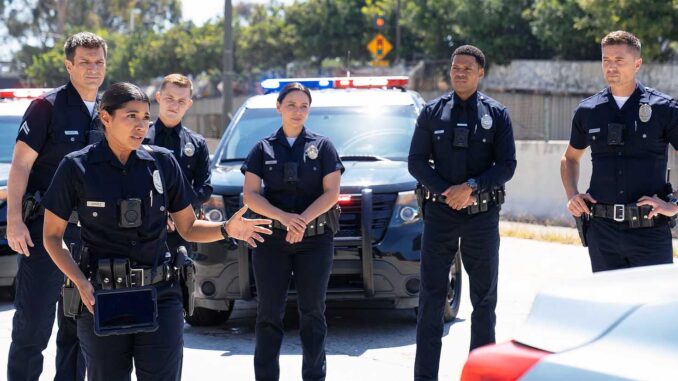
The Beat of the Ordinary: How The Rookie Builds Its Stories Around Everyday Patrol Officers
In a television landscape often dominated by high-stakes federal agencies, intricate forensic puzzles, and globe-trotting espionage, ABC's The Rookie carved its own niche by daring to focus on the most fundamental unit of law enforcement: the everyday patrol officer. Far from the glamorous or the extraordinary, the show constructs its compelling narratives not on the shoulders of superheroes, but on the very real, often mundane, yet perpetually unpredictable experiences of the men and women who respond to the 911 call, patrol the streets, and serve as the first line of defense. The Rookie builds its stories around everyday patrol officers by grounding its narratives in the routine call log, meticulously developing character through these ordinary encounters, and illustrating the profound impact of the job on personal lives, thereby elevating the commonplace into compelling drama.
At its core, The Rookie’s storytelling mechanism is the daily beat. Unlike shows that might open with a sensationalized murder or a complex conspiracy, The Rookie frequently begins with the seemingly innocuous, the mundane entries on a patrol officer's call sheet. A domestic dispute over a lost dog, a shoplifting incident at a convenience store, a noise complaint from an apartment, a welfare check on an elderly neighbor – these are the initial sparks from which often explosive narratives ignite. We see John Nolan, Lucy Chen, or Tim Bradford respond to a fender bender that escalates into a drug bust, or a routine traffic stop that uncovers a human trafficking ring. The brilliance lies in demonstrating how quickly the ordinary can unravel into the extraordinary, proving that the most dramatic incidents frequently sprout from the most unassuming seeds. The show consistently illustrates that for a patrol officer, there is no "typical" day; every seemingly simple call carries the potential for danger, discovery, or profound human interaction, thus keeping the audience on edge, just as the officers themselves must be.
Furthermore, these everyday encounters serve as the crucible for character development, allowing the audience to witness the officers’ growth, struggles, and evolving perspectives. It's not in solving a city-wide crisis that we learn the most about Nolan's idealism, but in his persistent efforts to de-escalate a mental health crisis with empathy, even when procedure dictates a more forceful approach. We see Lucy Chen's journey from a hesitant rookie to a confident officer not through a single heroic act, but through her handling of countless minor incidents – navigating difficult conversations with victims, enduring Tim Bradford's demanding training, and making split-second decisions on the street. Even the seasoned officers, like Bradford or Angela Lopez, reveal their vulnerabilities and humanity in these routine interactions: Bradford’s gruff exterior often cracks when dealing with child victims or the truly helpless, and Lopez’s sharp legal mind is honed by the endless stream of petty crimes and their all-too-human perpetrators. The show effectively uses these daily grind scenarios to peel back layers of personality, exposing their fears, their triumphs, and the ethical dilemmas inherent in their profession.
Finally, The Rookie deeply understands that for a patrol officer, the "everyday" extends far beyond the shift. The show masterfully weaves the personal lives of its characters into the fabric of their professional experiences, illustrating how the job permeates and often dictates their reality. Nolan's struggle to balance his role as a father with the demands of his new career, Chen's romantic entanglements within the precinct, Lopez's pregnancy and its impact on her high-stakes career, or Harper's fight for custody of her daughter – these are not separate, tacked-on subplots. Instead, they are organic extensions of the daily grind of police work. The trauma of a particularly brutal call echoes long after the sirens fade, impacting relationships and mental health. The camaraderie forged in shared peril on the streets translates into a chosen family that supports them through personal crises. By consistently showcasing how the constant exposure to humanity's best and worst affects their relationships, their well-being, and their very identities, The Rookie paints a holistic picture of the patrol officer, making their "everyday" not just about the calls they answer, but about the lives they lead both in and out of uniform.
In conclusion, The Rookie's enduring appeal lies in its unwavering commitment to the ground level. By meticulously crafting its narratives around the routine call log, allowing character to blossom through these ordinary encounters, and vividly depicting the intertwining of personal and professional lives, the show transforms the everyday beat of a patrol officer into a rich tapestry of drama, humor, and profound human insight. It celebrates the unsung heroes who show up, day in and day out, reminding us that true heroism often resides not in the extraordinary, but in the steadfast dedication to the ordinary duties that keep our communities safe.
